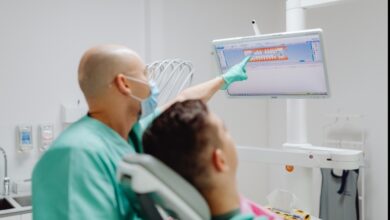Recognizing the Early Signs of Poor Vision in Seniors

As people get older, keeping good eyesight is very important for staying safe and independent. Spotting the early signs of vision problems in seniors can really help improve their lives. It’s easy to think that blurry or changing vision is just a normal part of getting older, but small changes might mean there’s a bigger issue.
Catching these signs early means they can get the right treatment sooner, helping them see better and stay more independent. Let’s get into it!
Understanding Common Symptoms of Poor Vision
Seniors may experience various symptoms that indicate their vision is deteriorating. Some common signs include:
- Trouble reading small print
- Difficulty seeing faces from distance
- Sensitive to light/glare
- Headaches after close work
- Blurry or double vision
It’s essential to note that changes in vision can often be gradual. For example, many seniors might begin spotting reading difficulties in seniors, but may attribute them to aging rather than recognizing them as warning signs of poor vision. Awareness of these symptoms can encourage proactive measures to address vision problems.
The Impact of Poor Vision on Daily Life
Poor vision can make daily life much harder for seniors. Simple tasks like reading, driving, or moving around the house can become difficult. This can lead to frustration and limit their independence.
It can also affect how they feel emotionally. Seniors with vision problems may stop doing things they enjoy or avoid spending time with others.
This can lead to loneliness or sadness. Recognizing how vision problems affect everyday life can help families and caregivers take action by encouraging regular eye checkups.
Encouraging Regular Eye Exams
Regular eye exams are important for catching vision problems early. Seniors should have a full eye check-up at least once a year. These exams look at more than just how well someone sees; they also check the health of the eyes, including the retina and optic nerve.
It’s also helpful when a family member goes along to the appointment. They can make sure questions are asked and concerns are shared. With regular eye care and the right support, many seniors can stay independent and enjoy a better quality of life.
Emphasizing a Healthy Lifestyle
In addition to regular check-ups, adopting a healthy lifestyle can also mitigate the risk of poor vision. Seniors should focus on:
Eat a Balanced Diet
Eating healthy foods can support good eye health. Foods with vitamins A, C, and E, plus omega-3 fats, help protect your vision. Fruits, vegetables, fish, and nuts are great choices to include in your meals.
Stay Physically Active
Regular exercise helps improve blood flow, which keeps your eyes healthy. It also supports overall health and reduces the risk of diseases that can harm vision. Even light activities like walking can make a difference.
Avoid Smoking and Too Much Alcohol
Smoking and heavy drinking can damage your eyes over time. These habits are linked to faster vision loss and other serious health problems. Quitting or cutting back can help protect your eyesight and improve your health.
Taking Action for Better Vision
Spotting early signs of poor vision in seniors helps ensure they get the care they need. Regular eye exams, healthy habits, and attention to symptoms can protect their sight and independence. Don’t wait-stay proactive in supporting their eye health.
Is this article helpful? Keep reading our blog for more.




